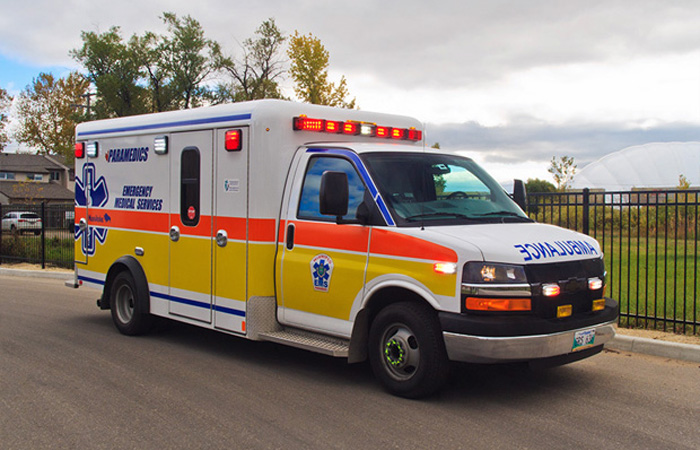Keeping its promise to provide families with more affordable emergency medical services (EMS), the Manitoba government has reduced ambulance fees, effective immediately, to no more than $250 per ride.
“Three years ago, Manitobans were paying the highest ambulance fees in the country,” said Premier Brian Pallister. “Since taking office, our government lowered those fees by 50 per cent, ensuring more Manitobans going through a potentially life-threatening medical emergency won’t worry about whether they can afford an ambulance before calling for one.”
The provincial government worked with regional health authorities, Shared Health and other ambulance providers to ensure the fee reduction is consistent and will provide reliable and affordable care in all corners of the province. Fees were reduced in stages from an average of $500 in 2016 to $425 in 2017, then again to $340 last year. This additional $90 reduction per trip, first announced in Budget 2019 and in effect today, means Manitoba now offers the lowest ambulance fees among all Prairie provinces.
“High ambulance fees affect many Manitobans, particularly older adults and seniors living on low or fixed incomes,” said Connie Newman, executive director, Manitoba Association of Senior Centres. “Reducing fees makes it more affordable for all Manitobans when they need emergency medical care.”
Since 2016, the Manitoba government has worked diligently to develop a 24-7 paramedic workforce of skilled professionals that are better equipped to handle the daily challenges they face. That commitment includes:
- giving the paramedic profession the right to self-regulate under The Regulated Health Professions Act;
- working to enact recommendations made in the 2013 EMS System Review that, when complete, will ensure response time targets are achieved and paramedics are able to work to their full scope of practice;
- funding to hire 95 additional full-time rural paramedics, including 35 announced last month in Budget 2019, to reduce the reliance on on-call staffing positions; and
- issuing a request for proposals to purchase 65 new ambulances that will represent a refresh of approximately one-third of the province’s overall fleet when the sale is completed.
Those investments build on the government’s commitment to enact recommendations made in the 2013 EMS System Review that, when complete, will ensure response time targets are achieved and paramedics are able to work to their full scope of practice.
“As Manitoba’s population ages and the incidence of chronic disease continues to rise, it is clear that demand for emergency medical services is only going to increase,” said Health, Seniors and Active Living Minister Cameron Friesen. “Our work to enhance the high level of care paramedics can deliver means health care for Manitobans truly begins when the paramedics arrive and administer medical care. Lowering the ambulance fees is the other piece of the puzzle, ensuring Manitobans are not deterred by prohibitive costs from seeking EMS assistance.”
Work is also underway to transition the planning, delivery and oversight of consistent, high-quality emergency medical services and patient transport to a provincial model within Shared Health, the minister noted. He added this will ensure service planning is connected to the provincial and clinical and preventive services plan, currently being developed, to ensure consistent and integrated service is provided seamlessly across regional boundaries and by the various municipal-based and contracted service providers across the province.
Manitobans are reminded to call for a paramedic to access high-quality, reliable health care in emergency situations rather than driving themselves to a local hospital or emergency department.
“Our paramedics are trained to provide appropriate care upon arrival and to transport patients to, and between, health-care facilities when more acute services are required,” said Scott Noble, regional director, emergency medical services, Southern Health-Santé Sud. “Ongoing efforts to build capacity, equip staff and hire skilled professionals support our efforts to create a reliable service for all Manitobans.”




